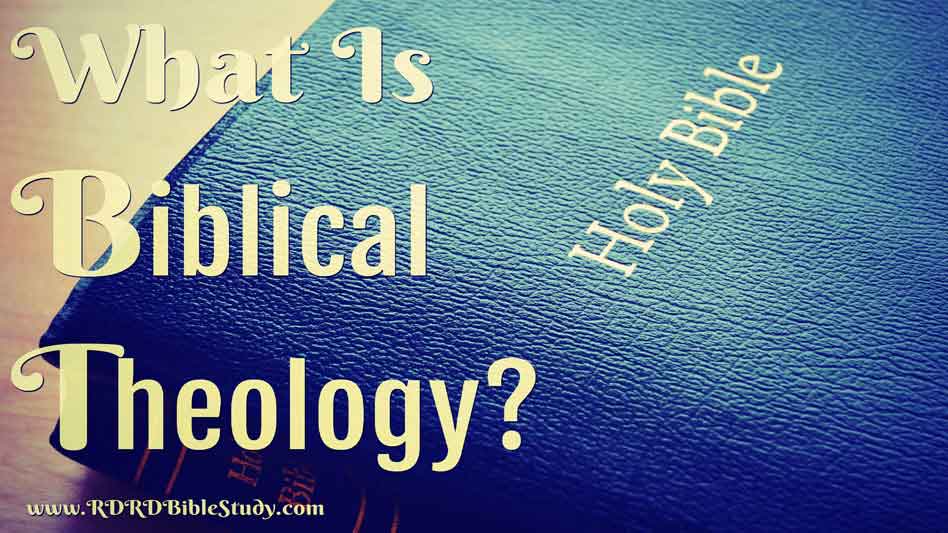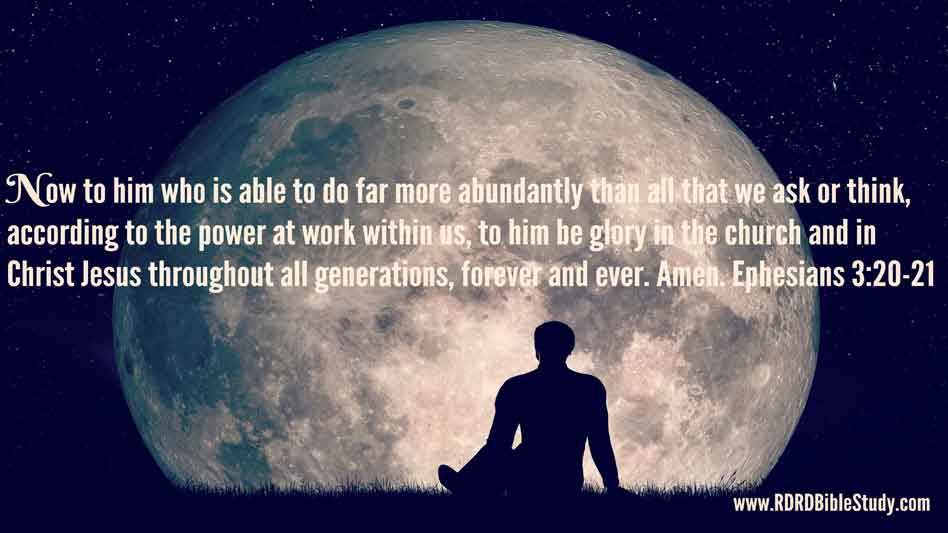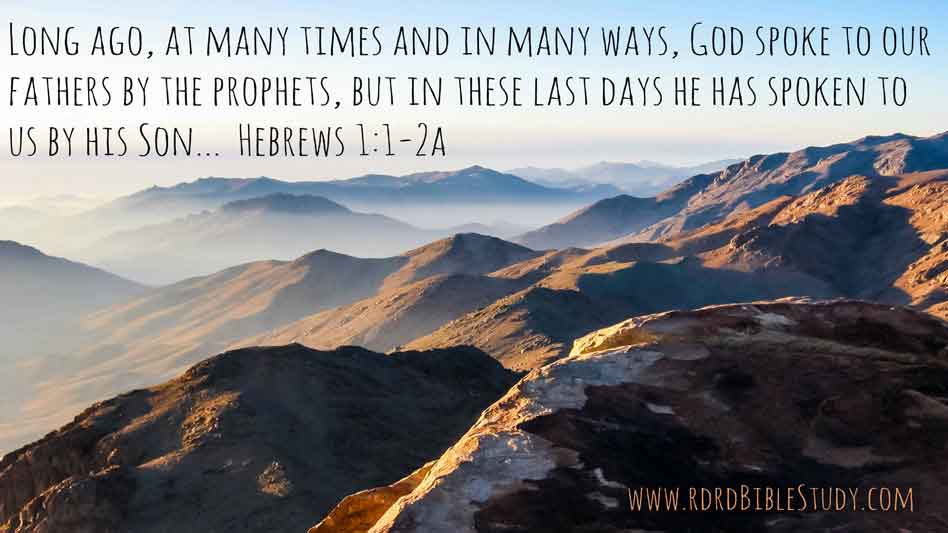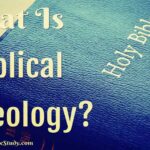That the Bible is a theological book may seem like a no-brainer. But it’s such a “no-brainer” that it is taken for granted. Biblical scholar and lecturer of New Testament and Ethics, Dr. Brian Rosner, says,
Strangely, enough, within the so-called theological disciplines there has been a neglect of the theological interpretation of Scripture. -Brian Rosner
Your first response may be “I don’t do theological interpretation of Scripture.” But anyone who reads the Bible, for whatever purpose, does theological interpretation of Scripture.
Multiple types of “theology” exist within the realm of Bible study. Biblical Theology (BT) is by far the most important theological discipline for both scholarly pursuits and the practical life of the church.
The purpose of this post is to 1) provide examples of a BT, 2) describe the concept more technically, and 3) present a list of benefits derived from Biblical Theology.
What Is Biblical Theology?
Throughout the last century, countless books and papers have been written to answer the question—“What Is Biblical Theology?” This article focuses on the consensus meaning adopted by many contemporary biblical scholars during the last 3-4 decades. In general, a pre-1930s use of the term “biblical theology” may have a particularly nuanced meaning. (See the upcoming post on The History of Biblical Theology.) The final version of Karl Barth’s Commentary on Romans released in 1933 marks a more specific turning point in the meaning of Biblical Theology.
New Studies In Biblical Theology
In the series preface to New Studies in Biblical Theology (NSBT), general editor D. A. Carson writes the following:
New Studies in Biblical Theology is a series of monographs that address key issues in the discipline of biblical theology. Contributions to the series focus on one or more of three areas: 1. The nature and status of biblical theology, including its relations with other disciplines (e.g. historical theology, exegesis, systematic theology, historical criticism, narrative theology); 2. The articulation and exposition of the structure of thought of a particular biblical writer or corpus; and 3. The delineation of a biblical theme across all or part of the biblical corpora.
Here is an NSBT series example from each of the three areas that Dr. Carson lists above:
1. A Clear and Present Word: The Clarity of Scripture by Mark Thompson. This volume historically surveys objections to the clarity of Scripture. While it expounds Scripture that present God as the Guarantor of His accessible, written word, it also engages with hermeneutical challenges and restates the doctrine for today.
This volume confronts the theory of Biblical interpretation, i.e. hermeneutics, with the BT of God revealing Himself to mankind.
2. The Book of Isaiah and God’s Kingdom: A Thematic-Theological Approach by Andrew Abernethy. In the volume, the author uses the concept of “kingdom” to organize the major themes of Isaiah.
The exposition focuses on Isaiah’s structure of thought.
3. Sealed With An Oath: Covenant in God’s Unfolding Purpose by Paul R. Williamson. This volume covers the biblical theme of “covenant” from Adam to the Book of Revelation.
The theme of “covenant” is delineated across all books of the Bible.
Area #3, as defined by Carson, is the most common type of BT – “The delineation of a biblical theme across all or part of the biblical corpora.”
Sample Biblical Theology For “God’s Dwelling Place With Man”
To further illustrate the concept of BT, consider the example of “God’s Dwelling Place With Man.” If you were preparing a lesson, paper, etc. on this topic, the following Biblical passages’ would be included. Note the similarity in description and the theological progression through the history of biblical revelation.
The Garden Of Eden
- Genesis 2:15 The LORD God took the man and put him in the garden of Eden to work it and keep it.
- Genesis 3:8 And they heard the sound of the LORD God walking in the garden in the cool of the day…
The Tabernacle
- Exodus 25:8 And let them make me a sanctuary, that I may dwell in their midst.
- Exodus 29:45 I will dwell among the people of Israel and will be their God. 46 And they shall know that I am the LORD their God, who brought them out of the land of Egypt that I might dwell among them. I am the LORD their God.
- Exodus 40:34-35 Then the cloud covered the tent of meeting, and the glory of the LORD filled the tabernacle. 35 And Moses was not able to enter the tent of meeting because the cloud settled on it, and the glory of the LORD filled the tabernacle.
The Temple
- 1 Kings 8:10-13 And when the priests came out of the Holy Place, a cloud filled the house of the LORD, 11 so that the priests could not stand to minister because of the cloud, for the glory of the LORD filled the house of the LORD. 12 Then Solomon said, “The LORD has said that he would dwell in thick darkness. 13 I have indeed built you an exalted house, a place for you to dwell in forever.”
Jesus, God Incarnate
- John 1:14 And the Word became flesh and dwelt among us, and we have seen his glory, glory as of the only Son from the Father, full of grace and truth.
The Church, The Body Of Christ, Is A Temple Of The Holy Spirit
- 1 Corinthians 3:16-17 Do you not know that you are God’s temple and that God’s Spirit dwells in you? 17 If anyone destroys God’s temple, God will destroy him. For God’s temple is holy, and you are that temple.
- Ephesians 2:19-22 So then you are no longer strangers and aliens, but you are fellow citizens with the saints and members of the household of God, 20 built on the foundation of the apostles and prophets, Christ Jesus himself being the cornerstone, 21 in whom the whole structure, being joined together, grows into a holy temple in the Lord. 22 In him you also are being built together into a dwelling place for God by the Spirit.
A Believer As A Temple Of The Holy Spirit
- 1 Corinthians 6:19-20 Or do you not know that your body is a temple of the Holy Spirit within you, whom you have from God? You are not your own, 20 for you were bought with a price. So glorify God in your body.
New Heavens and New Earth In the Eschaton
- Revelation 21:1-5 Then I saw a new heaven and a new earth, for the first heaven and the first earth had passed away, and the sea was no more. 2 And I saw the holy city, new Jerusalem, coming down out of heaven from God, prepared as a bride adorned for her husband. 3 And I heard a loud voice from the throne saying, “Behold, the dwelling place of God is with man. He will dwell with them, and they will be his people, and God himself will be with them as their God. 4 He will wipe away every tear from their eyes, and death shall be no more, neither shall there be mourning nor crying nor pain anymore, for the former things have passed away.” 5 And he who was seated on the throne said, “Behold, I am making all things new.” Also he said, “Write this down, for these words are trustworthy and true.”
Other passages supporting these Biblical references would be used as needed. For example, 1 Peter 2:4 ff., speaks about the church as the temple of God. Isaiah 7:14 and Matthew 1:23 would be used in the exposition of Jesus, God incarnate, both Scriptures referencing “Immanuel” which means “God with us.”
For sake of brevity, the example above does not list everything but provides a general idea of how biblical theology is done.
After reviewing these objective examples, the technical description will make more sense. Attributes of BT that are implicit in the examples will be articulated in the description.
A More Technical Description Of Biblical Theology
First A Word About The Word “Theology”
In his article on Biblical Theology in NDOT, Professor D. L. Baker posits
A problem arises with the understanding of the word ‘theology’ with reference to the contents of the Bible. If theology is understood to mean a systematic [dogmatic] statement of the doctrine of God, then it is found only to a very limited degree in the Bible. In conventional usage, however, the word often has a much broader meaning and may include almost any reference to the nature of God. When discussing BT, this broader term of “theology” should be understood (1).
This statement helps to “clear our minds” of any preconceived notions about the word “theology.” In postmodern times, the word almost always requires an adjective.
Keeping this broad definition in mind, Biblical Theology demonstrates the theological breadth, length, height, and depth of the Bible. The Word of God is a theological book and cannot be precisely interpreted without reference to its theology.
Focusing on the theological nature of the Bible does not negate its literary, cultural, and historical aspects, nor does it legitimize any interpretation of the Bible which ignores these aspects.
The basic point is that the Bible contains an abundance of theology, more than we can ask or imagine (Eph. 3:20), in the broad sense of thought and teaching about God and His activity. To say the least, the significance of this theology is fundamentally important for the Christian faith. In addition to historical and literary contexts, RDRDBibleStudy seeks to stress the importance of theological context in all bible study.
With that understanding of the broader term of “theology”…
Description Of Biblical Theology
Biblical Theology is concerned with the overall theological message of the entire Bible. From a BT perspective the whole Bible describes the progressive unfolding of God’s plan of salvation for humanity. The BT of a book, or particular passage within a book, considers its unique part in this same plan.
In general, BT’s objective is to understand the parts in relation to the whole. In order to accomplish this, BT pursuits must work within the normal exegetical realms of historical, literary, and theological contexts.
Therefore, BT also serves as the name of an interpretative approach used to present a unified integration of the message of Scripture. This method assumes that God identified Himself to mankind and those to whom He spoke understood Him to be God (see Exodus 6:2-3). The Bible is God’s self-revelation—the Word of God—transmitted to human authors through the inspiration of the Holy Spirit. These biblical authors recorded the Word of God using words and rules of grammar within literary genres which conformed to the norms of their historical contexts.
Note how “by the prophets” implies both the spoken Word “Thus saith the LORD…” and the written Word.
Accordingly, BT is inherently a hermeneutical process to interpret many different biblical authors communicating the word of God. Both this communication and interpretation, as with any Christian study of the Scriptures, is contingent on the conviction that Scripture is the written word of God, that God has taken the initiative to speak to humans through His Word, and that God has communicated and is communicating with human beings.
To summarize, BT corresponds to the theological interests of the texts themselves.
The Task Of Biblical Theology
BT aims to present a unified integration of the message of Scripture. In order to do this, two primary presuppositions are necessary: canon and the nature of Scripture.
Canon
BT presupposes a coherent and established canon of biblical books—the Old Testament and the New Testament.
The importance of canon is that it provides both boundaries and a basis. Doing BT is being engaged in interpreting the written Word of God. In order to do this, the books which comprise that Word, and their text, are alone relevant.
Nature Of Scripture
BT acknowledges the multi-dimensional nature of Scripture including, but not limited to, basic questions about the nature of God and the nature of humankind, linguistic insight, historical, literary, and theological contexts, and the essence of communication as listed above, i.e. Scripture is the written word of God and is based on the assumption that God has communicated and is communicating with human beings.
Benefits of Biblical Theology
The benefits listed under headings “Coherence of the Biblical Texts,” “Variety Of And Humanity Within the Biblical Texts,” and “Persuasive Apologetic” are adapted from P.G.H. Adams’ article “Preaching and Biblical Theology” (2).
Integrity Of Biblical Interpretation
John Wesley wrote that Scripture has primacy and authority in the life of the church. This is as true today as it was in the 1700’s, and for all time. It has been stressed in the previous sections that the Bible is the Word of God speaking to His people.
The issue of integrity in modern biblical interpretation has taken some hard hits. The relative omission of any theological emphases within the realm of Bible study during the trending 19th century historical-critical methods, followed by the vast amount of scholarship built upon it, left a practical theological vacuum. During the so-called BT Movement, fledgling attempts were made to restore theological study. But the movement suffered under the voice of well-known critics. Then “reconstructing” the texts reared its ugly head for a while.
By the will of God, BT stood firm. And today Biblical Theology has gained prominence among the major theological disciplines.
Within Christianity, BT reconciles the great divide between Biblical scholarship and the church’s practical reading of Scripture for everyday life. BT mediates between the university and church, doctrinal statements of faith and biblical study, the scholarly and practical.
BT serves as a place where scholars, clergy, and lay persons can jointly state the affirmation “the Word of God for the people of God.”
Meeting The Postmodern Challenge Of Biblical Interpretation
The postmodern challenge to Biblical interpretation is simply stated: every attempt to describe “what does the text mean” is really only a question of “what it means to me,” or even more detrimental “what we will it to mean.” Considering the ideological issues hounding contemporary societies, “what we will it to mean” interpretations are plentiful. And the results are disconcerting.
When thinking about biblical interpretation in these terms, the real threat comes to light: the question of the authority and supremacy of the word of God. The authority and supremacy of Scripture within the church, and by default a believer’s life, are not immune to this threat, and in fact suffers greatly from it. This interpretational crisis is yet another manifestation of the great disconnect between biblical scholarship and Christian theology over the past decades. Though we remain well aware that we do not wrestle against flesh and blood… (Eph. 6:12).
“But thanks be to God, who gives us the victory through our Lord Jesus Christ” (1 Cor. 15:17). BT offers a connection between these two integral parts of God’s Kingdom, a theory of interpretation cognizant of Christian doctrine. A theory of interpretation that seeks God’s message to His people.
Coherence Of The Biblical Texts
BT helps believers learn the coherence of the Bible. This includes:
- Learn to recognize and identify the pattern of God’s plan for humanity as revealed in the OT and NT, with a focus on Christ
- Learn the overarching storyline of the Bible that explains human existence and purpose in the context of God’s saving will and the coming of Christ.
- Learn the message of the Bible and understand the universe.
In this manner, BT refutes the questions “What does this text mean to me?” and “What do I will it to mean,” i.e. “How do I justify my beliefs and ideologies?” And upholds the question “What does this text mean?”
Variety Of And Humanity Within The Biblical Texts
Students of the Bible using BT will be able to rightly divide the Word of Truth (2 Tim. 2:15). This means the capable handling of the variety of biblical revelation by:
- Exploring every genre of writing
- Exploring every stage of biblical revelation
- Exploring every style of revelation
- Being alert to each stage of salvation history
- Being sensitive to the human context of every part of the biblical revelation
- Respecting the humanity of every part of Scripture
- Expressing the unity of the revelation as it comes from the mind of God
Persuasive Apologetic
Practical ability to defend the Christian faith is needed to help believers theologically analyze and address the pervasive worldviews of humanism, postmodernity, secularism, materialism, and pantheism—Christians must begin to think God’s thoughts after Him.
- BT is the best corrective for false worldviews and the best corrective for destructive heresies
- BT points people to the objective and historical reality of God’s progressive and purposeful revelation
God-breathed is from the Greek compound word θεόπνευστος. Note the θεό- part meaning “God.” Also note the πνευ- part of the adjective which is from the noun πνευμα which means “spirit, Spirit, wind, breath.”
Spreading The Gospel
All Scripture is God-breathed (2 Tim. 3:16), that is, it is God’s Word spoken by His Spirit. Since the Word is inspired by the Holy Spirit, the Word and Spirit cannot be separated. It is physically, mentally, emotionally, and spiritually impossible to separate Word and Spirit.
The Spirit infuses faith in Christ in a person’s heart. Preaching, teaching, and sharing the Word of God is the only way humans have been given to carry out our Christ ordained commission of spreading the Gospel and discipling believers.
Of course, the Spirit could grant faith in Christ to a person’s heart in various and sundry ways. But Jesus said,
The wind blows where it wishes, and you hear its sound, but you do not know where it comes from or where it goes. So it is with everyone who is born of the Spirit. (John 3:8)
When dealing with the eternal consequences of a person’s soul, who wants to second guess God’s Spirit? We don’t know “where He comes from or where He goes.” But “His divine power has granted to us all things that pertain to life and godliness, through the knowledge of him who called us to his own glory and excellence” (2 Peter 1:3). That knowledge of God, is God’s Word to mankind—the Holy Bible.
Biblical Theology reinforces and refines this knowledge.
Until Next Time—
The grace of the Lord Jesus Christ and the love of God and the fellowship of the Holy Spirit be with you all. 2 Corinthians 13:14
References:
(1) D. L. Baker, “Biblical Theology” in New Dictionary Of Theology, edited by Sinclair B. Ferguson, David F. Wright, J. I. Packer (Downers Grove: Intervarsity Press, 1988), 97-99.
(2) P.G.H. Adam, “Preaching and Biblical Theology in New Dictionary Of Biblical Theology, editors: T. Desmond, Alexander, Brian S. Rosner, D. A. Carson, Graeme Goldsworthy (Downers Grove: InterVarsity Press, 2008), 110.











